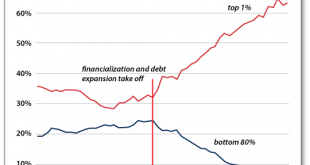Imagine you’re selling your family home this year. All your kids have grown up and moved out — it’s finally time to downsize to something more manageable.
If you sell in the spring or summer, what are you going to do with the profits from your big transaction?
Come April, the tax man is going to be after you for any capital gains you made. So, what do you do with that money?
My suggestion is calculate any capital gains taxes on the sale and park that amount in a money market account.
Why a money market account and not savings?
Money market accounts typically offer higher interest rates. As your money earns interest, you also have the ability to withdraw funds at your discretion. So, when the IRS comes knocking, you can easily write them a check and tell them to get lost.
That’s just one of many reasons why I like money market accounts. Today I’ll explain some of the other benefits to these misunderstood accounts.
Benefit #1 – Safety
Unlike stocks and bonds or any other investment vehicle for that matter, the money you invest in a money market account carries very little risk.
The reason why is money market account portfolios often invest in more liquid, short-term investments. And, as an added bonus, money market accounts are FDIC-insured, which will protect up to $250,000 per account, providing you with a safe investment.
Benefit #2 – Access
As I alluded to earlier, one of the key benefits to a money market account is the easy access to your funds. Being able to write checks when bills come due or emergencies arise will come in handy.
Money market accounts are kind of like a mix between a savings account and a checking account. Most money market accounts allow you to write up to a certain amount of checks per month, and you can also withdraw cash.
Some even offer debit cards to allow easier withdrawal of your funds. But, there are restrictions on how many times you can withdraw or use a card per month, similar to a savings account.
One of the knocks on money market accounts is their withdrawal limits. By law (according to the Federal Reserve Board via the Reserve Requirements for Depository Institutions Regulation D), you can only withdraw or credit transfer a maximum of six times per month on a money market account, and some banks or credit unions might even cap it at three times per month.
Benefit #3 – Earnings
Don’t let withdrawal limits scare you away. One of the biggest advantages of money market accounts is your ability to earn more interest than you would on a checking account.
Generally, money market accounts earn more the larger your balance is, and you can typically find rates somewhere between a CD and a savings account.
For instance, the Capital One 360 Money Market Account, offers an APY of 2.0% with a $10,000 minimum balance.
Sallie Mae currently has a money market account with a 2.20% APY and a $0 minimum balance, and a 2.18% interest rate to boot.
And State Farm Bank has a money market account with a 2.25% APY and a $0 minimum balance.
Those are the benefits to money market accounts, what about the drawbacks?
The biggest complaint I hear about money market accounts is most financial institutions require account holders to maintain a minimum balance. Bank of America, for example, requires a minimum balance of $2,500 for its Rewards Money Market Savings account.
If you don’t meet the minimum balance, you get hit with a $12 per month account maintenance fee, which can erase any interest gains you might have made. One way to get around paying this fee is by connecting the account to a qualifying checking account.
Commerce Bank’s Premium Money Market Account specifies an average daily balance of $5,000, although you only need $1,000 to open the account. The only other major drawback is the limited number of monthly withdrawals and transfers as per federal banking regulations.
Bottom Line
If you might need access to your money in the relatively near future, then a money market account is a good move. You’ll earn a small return while keeping the funds safe and accessible.
Think of money market accounts as great places to keep funds like:
- Emergency funds
- Quarterly and yearly tax payments
- Tuition
If you’re looking for a place to keep funds for regular expenses, this probably isn’t the account you’re looking for. Simply because of the account minimums and withdrawal limits as stated above.
That said, you could keep funds for a few of your larger monthly expenses, like your mortgage, in a money market account to earn a bit more interest.
To a richer life,

— Nilus Mattive
Editor, The Rich Life Roadmap
Source link
 Best Stock Hints Latest Tips To Buy & Invest Best Stocks Today
Best Stock Hints Latest Tips To Buy & Invest Best Stocks Today


